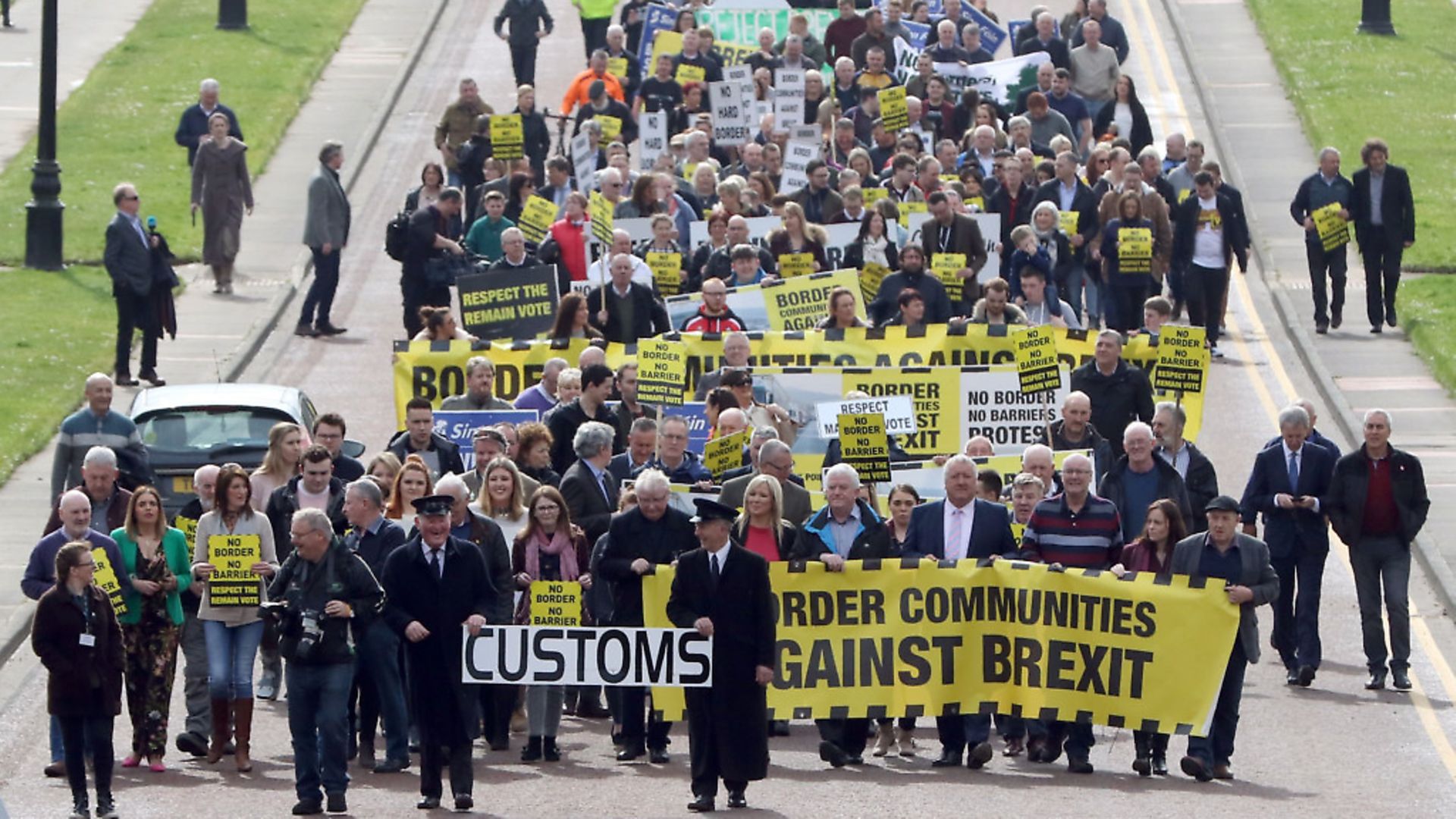
Theresa May forgot to think about the Republic of Ireland. Boris Johnson now thinks about it too much. Neither prime minister understands the complexity of the UK and England’s long and troubled history with the island of Ireland.
The necessity to maintain unfettered movement across what was once a border to end all borders between the Republic and Northern Ireland, together with the Republic and the EU’s imperative to maintain the integrity of the single market should have set alarm bells ringing in London on June 17, 2016. Instead, Mrs May appeared surprised the Irish Question, finally resolved by the Good Friday Agreement, had raised its head again. It was, of course, the fact that both parties were in the EU that allowed the 1999 settlement to take place.
The whole edifice may now crumble. Ireland and Britain could well return to a new version of the Troubles. The Troubles were, in fact, the last manifestation of a long and turbulent history. The new-found peace brought about by the Good Friday Agreement was perfectly symbolised by a historic rugby match in 2007. Ireland and England competed in the Six Nations tournament in Croke Park, Dublin, a venue resonant with Anglo/Irish history where the infamous British government ‘Black and Tans’ killed 14 Irish civilians in the violence following the partition of Ireland in 1922. 2007 saw England and Ireland competing at sport on this highly-charged ground.
If the UK leaves the EU without a deal, the Halloween witching hour will force Britain’s relations with Ireland back in to the dark days before the EU, and specifically before the freedom of movement brought about by membership of the single market. And they were dark days for Britain as well as for Ireland. Today’s British politicians, brought up in an atmosphere of friendship between the two countries, seem not to fully comprehend today’s Ireland. Ireland in 2019 is both progressive and prosperous. The old shibboleths against homosexuality and abortion are now truly buried with same-sex marriage and abortion reform well established. Ireland’s prosperity, thanks in no small part to the European Union, knocks Britain’s for six. Its GDP per capita was 76,098 USD in 2018 compared with 42,577 for the United Kingdom.
Yesterday’s Ireland was a different matter. Defined in the 19th century by Benjamin Disraeli as a place with “A dense population, in extreme distress, inhabiting an island where there is an Established Church, which is not their Church, and a territorial aristocracy the richest of whom live in foreign capitals. Thus you have a starving population, an absentee aristocracy, and an alien Church… That is the Irish Question.” Prime minister Gladstone made two unsuccessful attempts at getting an Irish Home Rule Bill passed by Parliament in 1886 and then in 1893. A further effort in 1912 proved even more controversial, being followed by the 1916 Easter Rising.
This is the history UK leaders seem to have forgotten. Ireland, though now far removed from its colonial past, still bears some scars. On the British side, the current government, in common with Conservative Party members, seem mired in the 1950s. Ireland to them is “micks” on building sites typified in notices saying “no blacks, no Irish, no dogs” seen during the 1950s on rooms to rent. There is a type of English person who seems incapable of recognising Ireland has come of age. Chief among them was Theresa May, who failed to either understand or anticipate reaction to the Irish backstop.
It’s not just about Ireland. The Theresa May school of government also failed to understand the European Union. The EU of 28 member states is a recent creation, finalised as late as 2004. Britain has never grasped the EU’s utter determination to maintain the European Project at almost all costs and to protect the integrity of the single market. English ignorance of the European Union has infected the UK’s leaders. Decades of anti-EU rhetoric by the right-wing media and others have left their mark not only the British people but also on their politicians. Such ignorance comes at a high price.
The high price is Boris Johnson’s high wire. If May was ultra cautious and willing to have three goes at leaving the EU, Johnson is picking up the sad and sorry saga at its end. We are about to experience a full-scale crisis about leaving the EU, just as there was a full-scale crisis about Irish independence. After three attempts at Home Rule legislation, the outcome for Ireland was not at all satisfactory. Partition led to sectarian violence, both on the island of Ireland and the UK mainland.
In the same way Brexit, certainly without a deal and probably with one, will cause chaos and a fall in living standards. Racial violence has already gone up. Inflation is on the increase. The UK is becoming the laughing stock of the world. The madness of Britain’s government and the Conservative/Brexit Party axis has caused us to lose our valued seat at the top international table. Brexit will inevitably cause our once proud and important nation to hit the buffers as the 51st state of the USA.
This is the scenario Boris Johnson is trying to achieve by bullying Conservative MPs while reassuring the British people that everything is hunky-dory. Theresa May also tried to bully MPs. May failed, and Johnson is by no means guaranteed success. Britain deserves better. Ireland deserves better. The EU deserves better.
Mary Honeyball was a Labour MEP for London from 2000-2019









